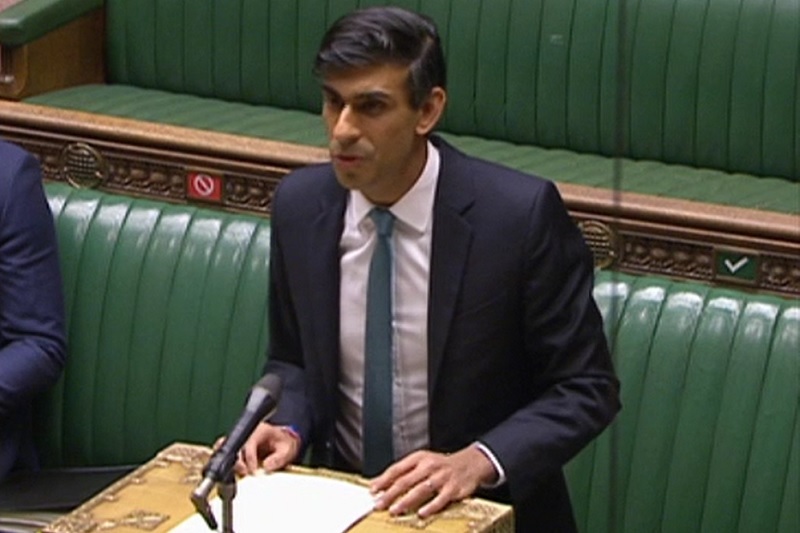You are viewing 1 of your 1 free articles

Lynsey Sweeney is managing director of Communities that Work
Levelling up needs a rethink in light of COVID
The government is shaping its levelling-up agenda along geographical lines, but that’s outdated, says Lynsey Sweeney. Meanwhile, social landlords have limited time to influence the replacement for the European Social Fund
It will be of little surprise to those who work in social housing that the COVID-19 health crisis has given way to an economic crisis, hitting the economically vulnerable hardest and widening the gap between the haves and the have-nots.
The housing sector has been on the front line of COVID-19 for much of the past 18 months – seeing the best of our community spirit and neighbourhood support, whilst witnessing some of the worst effects the virus has had on people, families and communities.
“A single parent on a zero-hours contract in Watford has a lot in common with, and similar life chances to, a single parent on a zero-hours contract in Wigan”
The recovery is already being framed around the government’s ‘levelling-up’ agenda, which Boris Johnson, the prime minister, is hoping will act as a much-needed defibrillator for our towns and cities – pumping financial investment into regional economies and trying to break down the inequalities gap by creating opportunity where investment has been historically lacking.
But this ambitious agenda was conceived in a pre-pandemic age. It was designed to tackle geographical inequalities that were visible on a map: wanting to boost economic performance outside London and the South East, to ‘level up’ across the country and to revive the fortunes of the UK’s ‘left-behind’ towns and cities north and west of the M25.
Yet the (widening) post-COVID social disparity has blurred the lines and Mr Johnson can no longer use the levelling-up map to plan his journey to prosperity. Today more than ever, a single parent on a zero-hours contract in Watford has a lot in common with, and similar life chances to, a single parent on a zero-hours contract in Wigan. We risk leaving so many people behind if we let our focus be guided more by geography than need.
Those who are most at risk of falling into poverty, or further into poverty, aren’t confined to a specific region. More than 13 million people in the UK live in low-income households, and they aren’t confined to one region, though many will be united by their tenure type.
It’s now critical that our focus on levelling-up sharpens into where it’s needed most: levelling up social housing to help eradicate poverty and bring social housing tenants opportunities and life chances in line with other tenures.
The Ministry of Housing, Communities and Local Government has brought together a new expert challenge panel from all parts of the housing sector to advise on how long-lasting, meaningful improvements can be made. This group of 14 organisations, including my organisation, Communities that Work, will bring to life the ambitions of the Social Housing White Paper – but must play a critical role, too, in shaping how we support our communities as we all emerge from the pandemic.
“We stand ready to work alongside government and ready to help shape improvements and create opportunity through the UKSPF for those who need it most, wherever on the map we find it”
Critical to this is the new UK Shared Prosperity Fund (UKSPF). The UKSPF is a once-in-a-lifetime opportunity to rethink and redefine the way government invests in people and places. The UKSPF shouldn’t be a rebranded version of the old European Social Fund. It needs to be an overhaul to meet the ambitions we want it to deliver, and to be the engine of a levelling-up agenda that’s fit for all.
And social housing must be at the heart of its design and delivery.
Our sector has the proven ability to help people into sustainable employment and help grow local economies. We understand that each person’s path to prosperity looks different and each community’s needs vary. Our collective experience and unparalleled insight can help government deliver place-based, agile interventions that meet local, household and individual needs, making sure lasting solutions are put in place to lift the most vulnerable away from poverty and towards security, well-being and prosperity.
And as if that weren’t powerful enough, social landlords are the second-biggest investor in employment support after the Department for Work and Pensions, investing an average of £70m each year to help people access employment and progress in work. If government designs the UKSPF in a manner that leverages the sector’s local investment and impact, it can amplify the fund’s ability to deliver at scale, drive up value for money ratios and speed up the pace to reach those most in need of support.
But we must act now, as time to help shape the UKSPF is running out.
As ever, we stand ready to work alongside government and ready to help shape improvements and create opportunity through the UKSPF for those who need it most, wherever on the map we find it – be it in Watford or Wigan.
Lynsey Sweeney, managing director, Communities that Work











